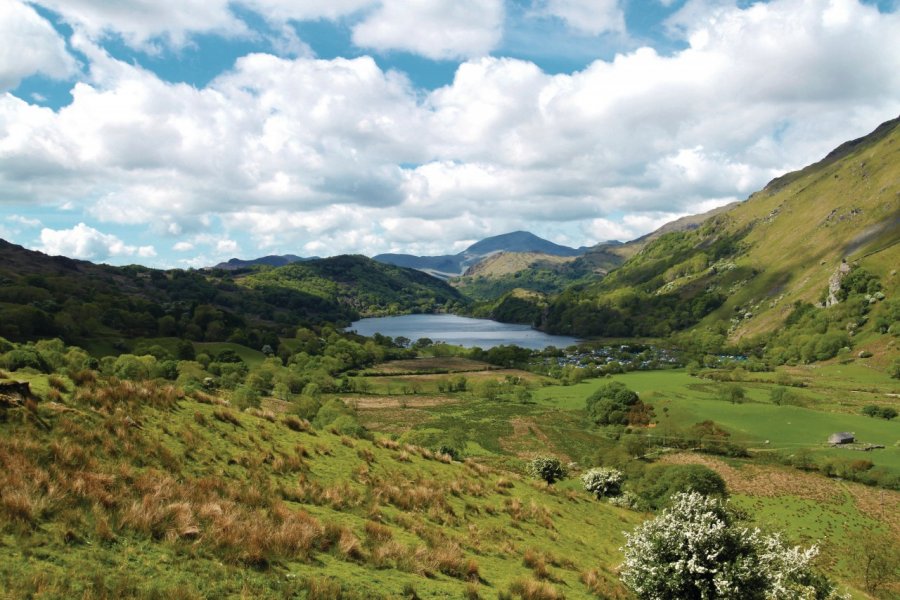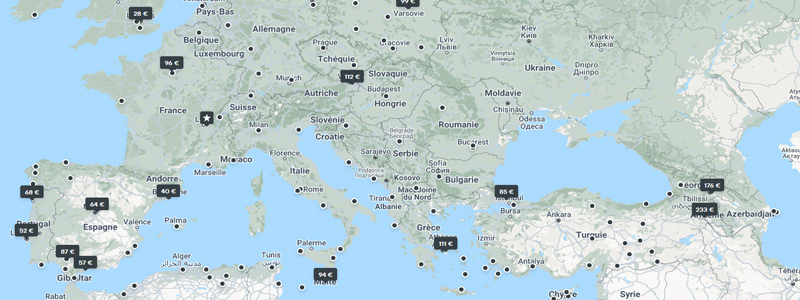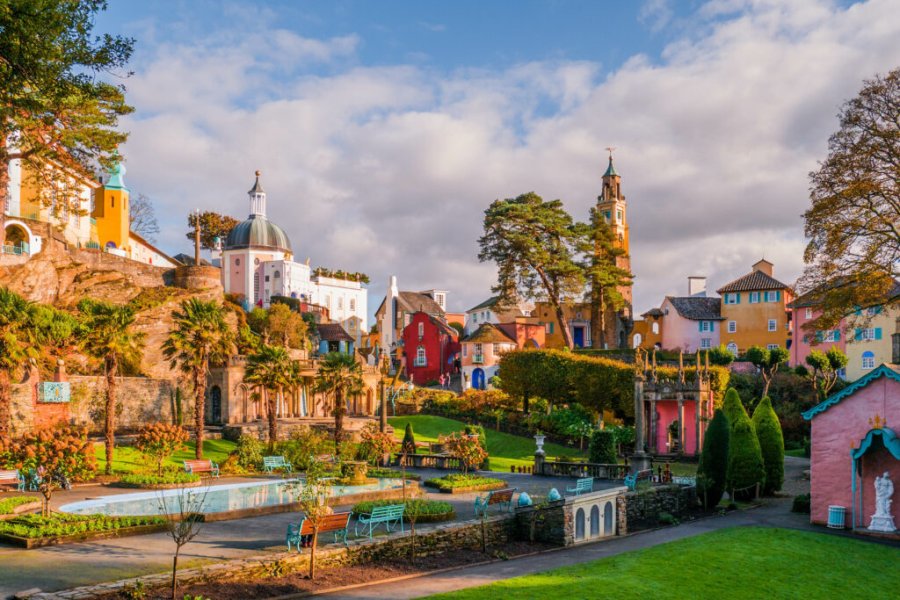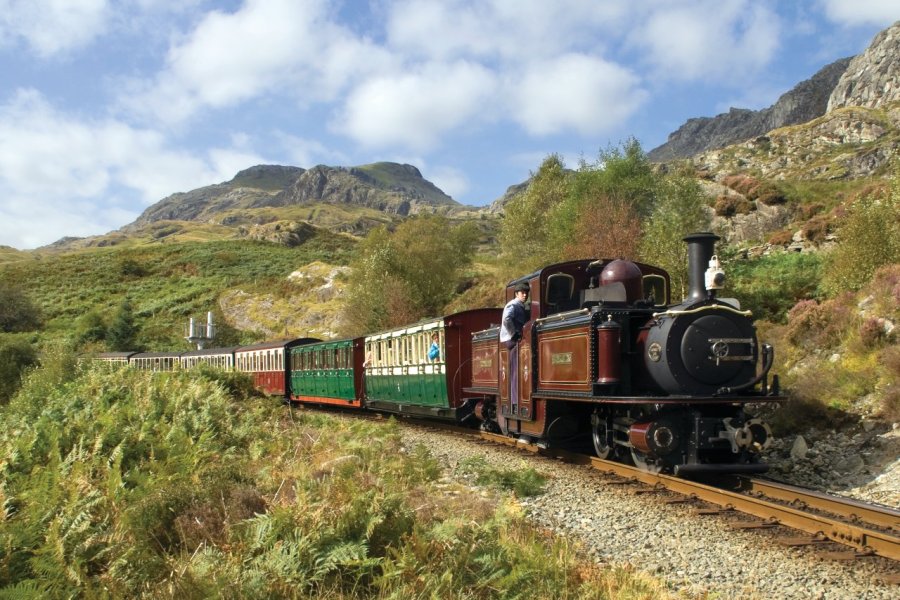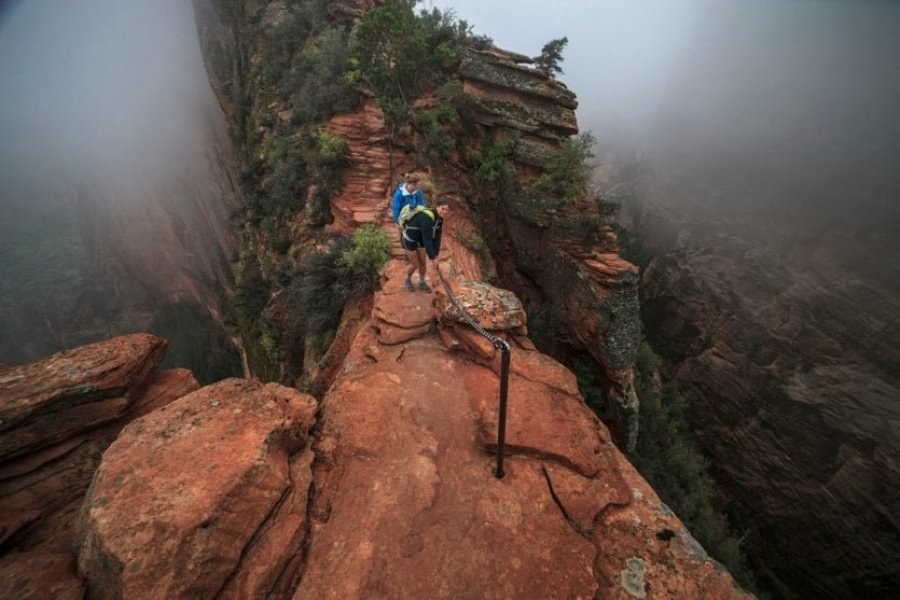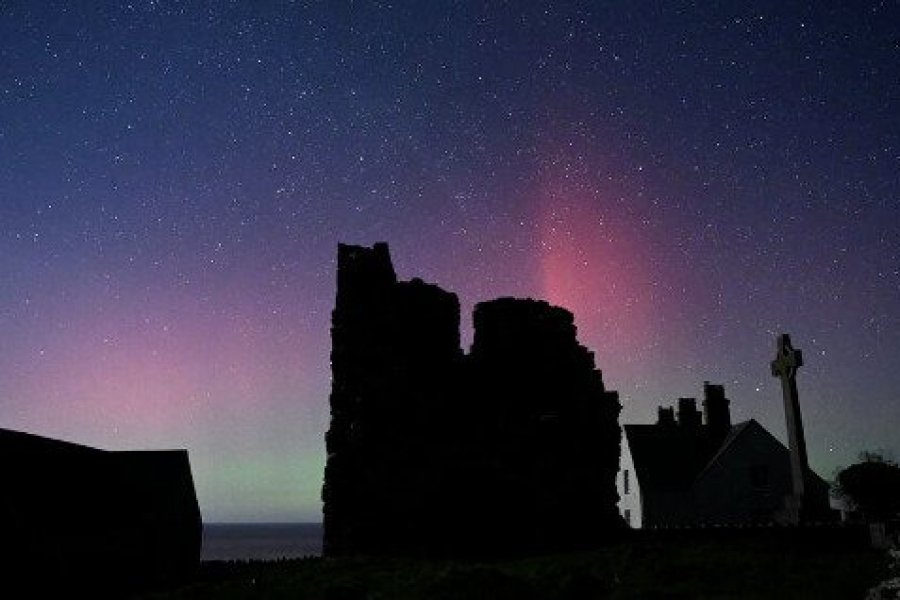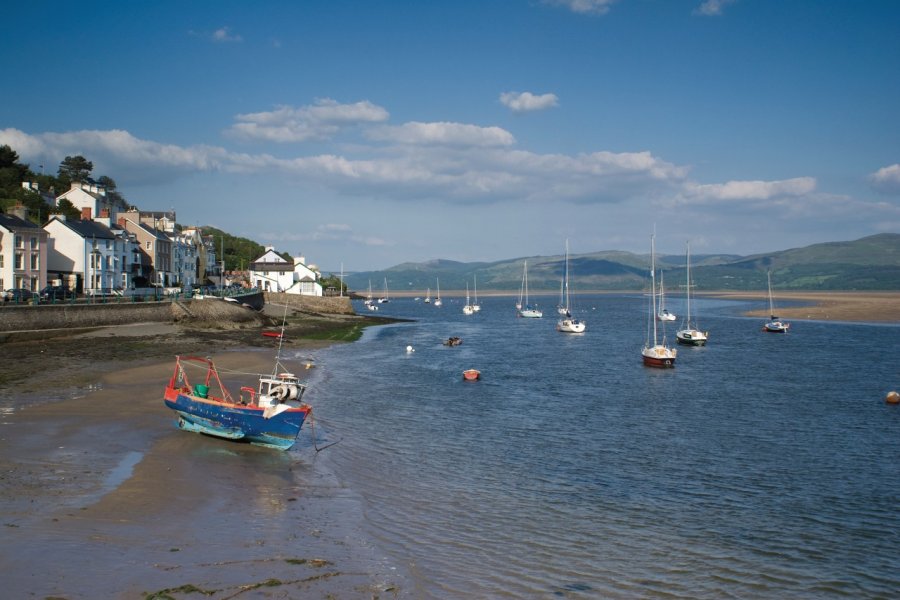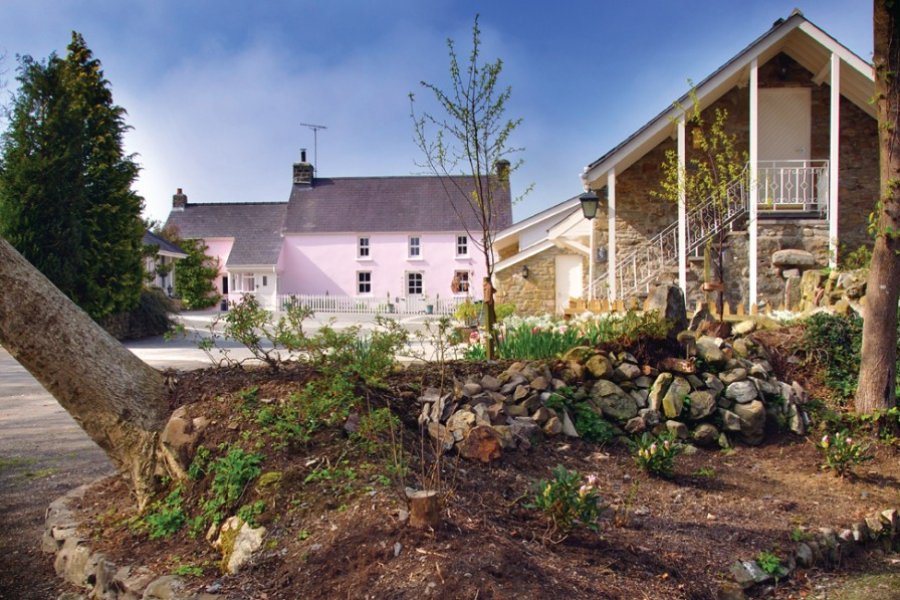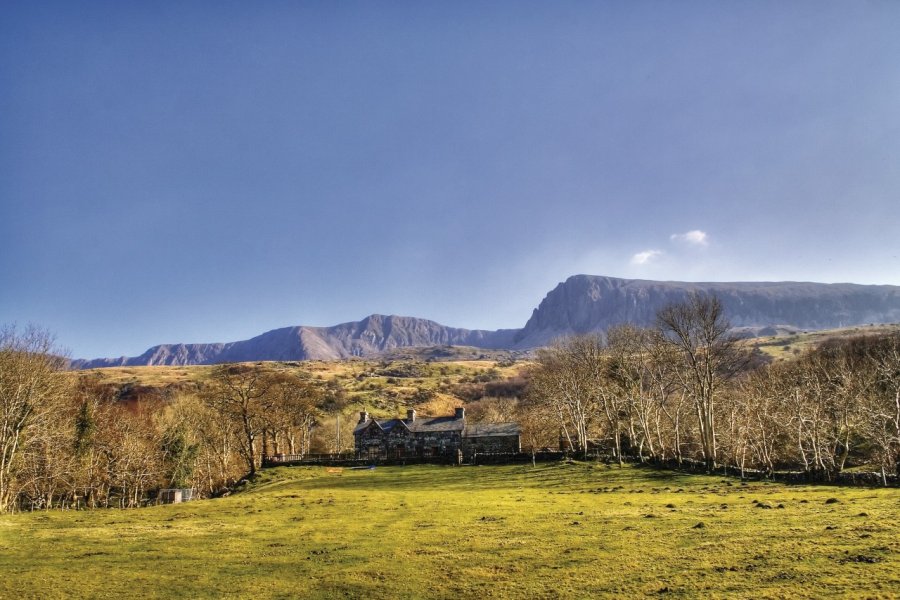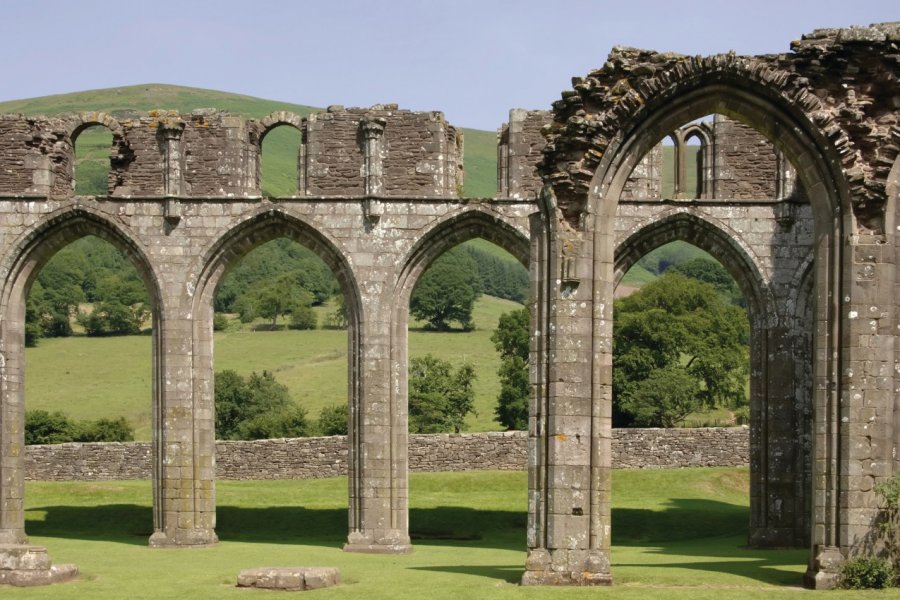Travel guide Wales
It is one of the nations of the United Kingdom. Located in the southwest of the island of Great Britain, Wales - Wales in English, Cymru in Welsh - offers 1,200 km of coastline with seaside resorts, national nature parks, wild mountains and a wealth of heritage, including Cardiff, the capital, and preserved traditions. A student and cosmopolitan city, alternating futuristic architecture and historical monuments, Cardiff is particularly attractive. We must see the new Assembly building, made of glass and slate or the Millennium Centre, on the waterfront, a major cultural and artistic centre and, of course, Cardiff Castle, a jewel in the city centre. You have free access to seven national museums, including the National Museum dedicated to art and natural history. In Big Pit, you will discover the National Coal Museum, which evokes a local epic and allows you to go down into the mine with a miner 90 m underground. Three national parks await hikers and lovers of green biodiversity. The largest is Snowdonia at the foot of Mount Snowdon, which houses the huge natural lake of Llyn Tegid. Pembrokeshire Coastal National Park protects a spectacular coastline of beaches and cliffs. Finally, the peaceful Brecon Beacons National Park invites you to discover a wooded environment, bathed in rivers, waterfalls and waterfalls, with bat caves. Golfers can enjoy beautiful green golf courses and lovers of giant zip lines. For all, leaving for this destination with your travel guide is recommended.
What to see, what to do Wales?
-
Book an activity
-
Customized travel
- The most beautiful cities Wales
When to go Wales ?
When to go to Wales? You can stay in Wales all year round without worrying even if the seaside resorts are then dormant. But if you want to hike or enjoy the beach, it is better to come in summer. It is then the high tourist season. Winter is not without its charms, especially if you stay in a charming cottage. Autumn and winter are very humid, you will often have to protect yourself from the rain. In winter, temperatures are around 6°C. From April on, the weather is mild and the sun is generous.
Suggested addresses Wales
Travel Wales
-
Find a hotel
-
Car Rental
-
International e-SIM package
-
Find a local agency
Dans cette rubrique, nous vous proposons plusieurs idées de séjours : séjours courts, longs ou encore thématiques. Trois jours, c’est le temps idéal pour visiter une partie bien définie du pays, quitte à y revenir. Cet itinéraire vous permet d’apprécier Cardiff, la plus jeune des capitales européennes, des paysages grandioses, des châteaux et l’âme celtique. Un voyage d'une dizaine de jours à travers un cadre naturel unique suffira pour vous laisser séduire par la beauté et la richesse historique du pays de Galles. Impossible de ne pas proposer d’itinéraires vous entraînant le long des « castles », sur les pas du roi Arthur ou encore sur les traces de l'héritage industriel. Malgré sa petite taille (300 km du nord au sud), le pays de Galles possède des châteaux par centaines. Enfin, n'hésitez pas à lire ou relire nos dossiers thématiques qui vont donneront plus de détails sur les légendes et les châteaux.
Find unique Stay Offers with our Partners
How to go Wales
How to go alone
There is no difficulty in organizing your stay in Wales by yourself. Of course if you speak English it is better, at least easier. You can find hotels and homestays, as well as small and affordable restaurants. The ideal is to travel with a car that allows you to organize your itinerary and your time.
How to go on a tour
Travel agencies offer different formulas to stay in Wales from France, stays in Cardiff, itineraries to discover the national parks on footpaths, discovery of history, Welsh culture, golf stays, etc. Stays of 8 to 10 days are recommended.
How to get around
Due to the terrain, the road and rail routes from the north to the west take a detour to the east through England. Don't miss the chance to ride a steam train. The M4 freeway links London to South Wales, passing through Newport, Cardiff and Swansea, to Abraham Bridge where it joins the A48 to Carmarthen. If you rent a car, beware of driving on the left.
Featured articles Wales
Discover Wales
Head for the north of the country! In this area between valley and sea, you'll find the Snowdonia National Park and the country's highest peak, the Conwy lands, the Isle of Anglesey and many other places like Llangollen and Holy Island. It's also here that you'll find the most unusual and atypical village in Wales: Portmeirion, or the village with the longest name in the UK at 58 characters! You'll be immersed in Welsh legends, hills and forests ideal for hiking, fishing villages... Between the mountains and the big cities, you'll discover castles, ancient churches and crafts. And in every village, the pubs are the ideal place to remember Welsh hospitality and energy!
Pictures and images Wales
The 12 keywords Wales
1. #Castles
From the imposing ruins of Norman castles in the south, witness to a tormented era, to Edward I's castles on the north coast, built to protect his lands, they're everywhere! Of all sizes, in all regions. Fortified, manor houses, romantic ruins. Scattered ruins also dot the land.
2. #David
Saint David is the patron saint of the Welsh and the only Celtic saint to be canonized. Very little is known about his life. He led an austere life, dedicated to God. In the 9th century, he was given the name "Aquarius", because he and his followers drank only water. They were vegetarians, studied, worked the land and prayed.
3. #Dragon

The dragon has long been the emblem of Wales. The Welsh flag features a red dragon on a green and white background. In the 7th century, the Welsh hero Cadwaladr imported the dragon to Wales. The animal quickly became the symbol of the country. Today, it's everywhere, on banners, T-shirts..
4. #Druids
Two families of druids remain. The first meets annually at the Royal Eisteddfod. It comprises a heterogeneous group of Welshmen with either an important social function or a gift for poetry. The second group of druids tries to recover the practices of the druids of Celtic times, as little knowledge remains.
5. #Eisteddfod
These great festivals are genuine traditions, dating back as far as the 10th century. Seven centuries later, under the impetus of Queen ElizabethI, who wanted to regulate the proliferation of wandering musicians, the Eisteddfod was formalized and became an annual national event, welcoming bards, storytellers, singers and minstrels.
6. #Daffodil

One of the three symbols of Wales. The legend behind the celebration of the daffodil is charming and emblematic of Welsh pragmatism and humor. The Welsh word for leek is Cenhinen and for daffodil Cenhinen Pedr. Over the years, the Welsh confused the two and the daffodil was adopted as the symbol of the country!
7. #Welsh language
Welsh is the heart language of Wales. The word welsh comes from the Old English wealh, meaning "foreigner". This is how the Saxons referred to their Celtic neighbors. Spoken by half the population at the turn of the century, Welsh is now spoken by only 25% of the population, but remains ubiquitous.
8. #Merlin the Enchanter
The Welsh are convinced that the hero of our childhood came from here. It is said that it was after 50 years of walking in the forest with wild animals that he acquired his clairvoyant gifts. It was also in the forest that he is said to have seen a fight between two dragons, one white and one red, and to have predicted the victory of the latter!
9. #PrinceofWales
The title is traditionally bestowed on the heir to the British throne. It is currently held by William, eldest son of King Charles III. On the day of Charles's investiture as Prince of Wales at Caernarfon Castle, some of the audience wore badges reading "No Englishman can claim to be Prince of Wales".
10. #Pubs

More welcoming than a bistro and more intimate than a large café, the pub is much more than a place to come for a drink - it's an integral part of Anglo-Saxon culture. It's a place where people meet, socialize and chat, always over a pint of beer. There are an impressive number of pubs all over the country.
11. #Real Ale

A British expression you need to know! It refers to beer brewed in the traditional way. Fermentation takes place naturally, producing a weak gas. Result: no need to add artificial gas. Many pubs serve real ales, often produced locally. Originally, real ales were brewed without hops and drunk fresh.
12. #Rugby
More than an institution, it's a veritable religion that inspires the Welsh people as a whole. The XV du Poireau or the Red Devils are worshipped like gods in Wales, and matches are an excuse to celebrate. If you get the chance, don't miss a match at the stadium or pub!
You are from here, if...
You're not afraid of the rain! And you know how quickly the weather changes.
For you, the last Prince of Wales will always be Llywelyn, regarded as the hero who ruled the royal house in the 13th century and defended the homeland until his execution in 1283.
You're not English! Don't let the geographical proximity fool you. Here, we like to claim our Celtic origins. Criticism of our English neighbors is rife. A tender war that reaches its climax on match night. In fact, if France play England, there's a good chance the Welsh will be on the French side!
You know that the 11pm bell in the pub means it's time for the last round! And you've got your favorite pub, "the local", with your own habits. The tradition of the Pub Quiz (general knowledge competition), held weekly in many pubs, is a must, given the unique atmosphere.
Other destinations Wales
- Anglesey (Ynys My)
- Brecon Beacons
- Cardiff (Caerdydd)
- Carmarthenshire (Sir Caerfyrddin)
- Central
- Ceredigion
- Merthyr Tydfil (Merthyr Tudful)
- Conwy (Sir Conwy)
- Denbighshire (Sir Ddinbych)
- Flintshire (Sir There Fflint)
- Gwynedd
- Monmouthshire (Sir Fynwy)
- Pembrokeshire
- Peninsula Of Gower (Penrhyn Gwyr)
- Newport (Casnewydd)
- Snowdonia
- TorFaen (Tor-Faen)
- Vale Of Glamorgan (Bro Morgannwg)

